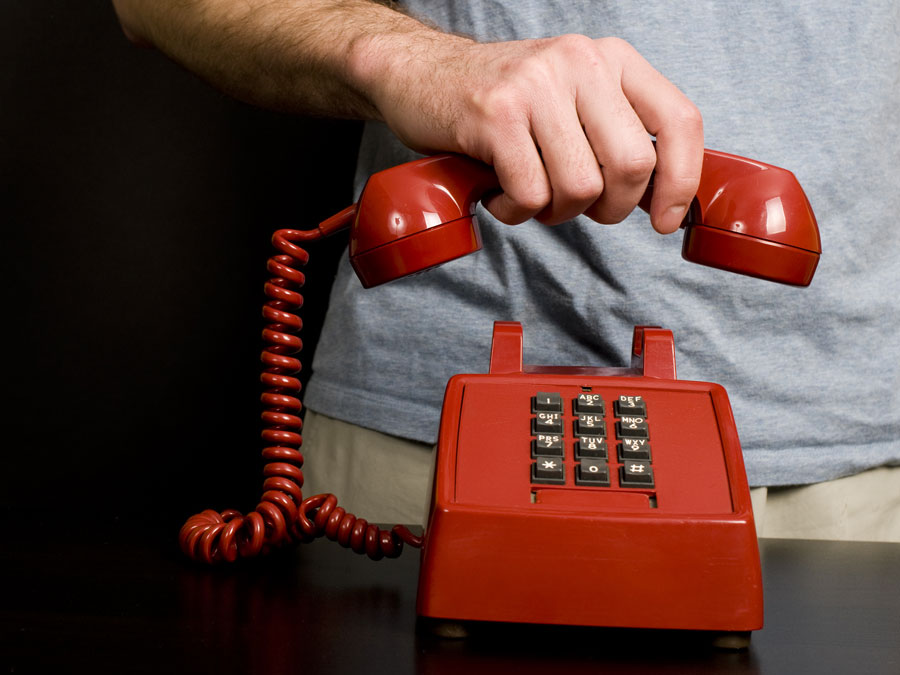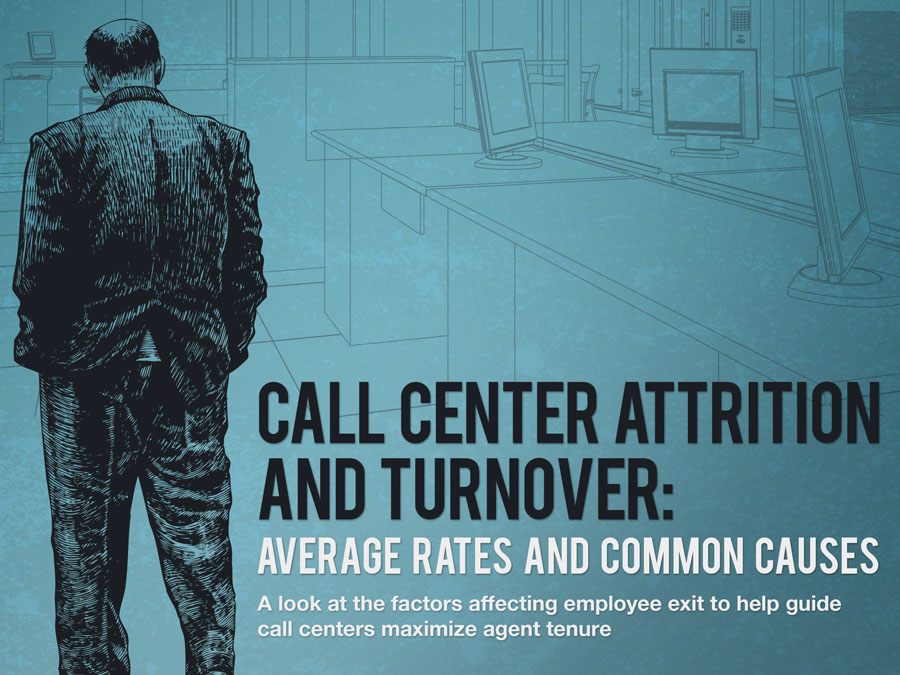In dealing with difficult customers, how much is too much? Here’s how to handle abusive customers in the call center.
As a call center leader, you understand the significance of providing exceptional customer service to build positive relationships with your clientele. However, the unfortunate reality is that not all customers will treat your staff with respect and courtesy. Therefore, you should learn how to handle abusive customers in the call center.
Abusive customers, with their aggressive behavior, verbal insults, unreasonable demands, and even threats, can severely impact your team’s morale, overall service quality, and brand reputation. Today, we will look into the traits of abusive customers and the negative consequences of tolerating such behavior.
Understanding Abusive Customer Behavior
Abusive customer behavior encompasses a range of negative traits that can manifest in various forms, such as verbal abuse, aggression, manipulation, and threats. It is essential to recognize these traits to identify abusive customers and take appropriate measures to protect your employees and business reputation.
Customer abuse can leave a lasting impact on your team members, affecting their well-being and job satisfaction. By addressing these behaviors, you can create a more supportive and nurturing work environment for your staff. You can also learn how to handle abusive customers in call centers.
How should you handle an abusive customer, anyway?
1. Excessive Aggressiveness
Abusive customers who exhibit excessive aggressiveness can create a hostile and stressful environment for your customer service representatives. This behavior may manifest in various forms, including raising their voices, using insulting language, or even making physical threats.
Such aggression can significantly impact the well-being of your employees, causing heightened stress levels and emotional strain. As a result, your team members may find it challenging to maintain their composure and deliver the quality service your customers deserve.
-
De-Escalation Training
Dealing with excessively aggressive customers can be emotionally draining for your employees, leading to decreased job satisfaction and increased turnover. It is essential to recognize the toll that such behavior takes on your team and take proactive measures to support them.
Implementing de-escalation training can equip your staff with the tools to defuse tense situations, protecting both their emotional well-being and your brand’s reputation. This way, you will learn how to handle abusive customers in call centers.
2. Verbal Abuse and Insults
When rude customers resort to using offensive language towards your customer service staff, it can have a profound impact on their self-esteem and confidence. Enduring verbal abuse can chip away at the motivation and enthusiasm of your team members. As a result, it gets increasingly challenging for them to deliver top-notch service with a positive attitude.
No employee should have to endure insults or derogatory remarks while trying to assist customers. As a business owner, it is your responsibility to provide a safe and respectful working environment for your team. Learning how to handle abusive customers in call centers helps you with this.
-
Zero Tolerance for Verbal Abuse
Implement a zero-tolerance policy for abusive language, and ensure that your employees feel supported and empowered to address such behavior appropriately. Offering counseling or stress management programs can also help your staff cope with the emotional toll of verbal abuse.
3. Unreasonable Demands
Abusive customers often make demands that are beyond reason and feasibility. They may insist on special treatment, demand unrealistic resolutions to their problems, or expect preferential treatment over other customers. Dealing with such unreasonable demands can put immense pressure on your employees, leading to feelings of frustration and powerlessness.
Because of this, you need to learn how to handle abusive customers in call centers.
-
Setting Boundaries with Customers
As a call center leader, it is crucial to empower your agents to make reasonable decisions and set appropriate boundaries. One way to do this is by providing clear guidelines on what can and cannot be accommodated. This ensures that your team feels supported when dealing with difficult requests.
4. Threats and Intimidation
Some abusive customers resort to threats and intimidation tactics to achieve their goals. Unfortunately, this creates a hostile and unsafe work environment for your team. Threats may include legal action, social media smear campaigns, or negative online reviews aimed at damaging your client’s reputation.
-
Taking Threats Seriously
It is essential to take threats seriously and prioritize your employees’ safety and well-being. On that note, implement a security protocol to protect your team from potential harm. In addition, encourage them to report any incidents of intimidation immediately.
However, engaging with threatening customers can also be risky. In such cases, empower your employees to involve their supervisors or escalate the matter to the appropriate authorities when necessary. Knowing how to handle abusive customers in call centers will keep your agents safe.
5. Frequent Complaints and Manipulation
Abusive customers may engage in manipulative tactics, exploiting the customer service system to their advantage. For instance, they may use constant complaints to gain unwarranted concessions, discounts, or special treatment.
This manipulative behavior not only harms your client’s bottom line, though. It also demotivates your employees who may feel that their efforts are unappreciated. This is why you need to learn how to handle abusive customers in call centers.
-
Proper Handling of Complaints
As a call center leader, it is essential to identify patterns of manipulation. Plus, you should also set boundaries to prevent customers from taking advantage of your goodwill. To that end, you can implement a fair and consistent complaints handling process. Additionally, you can empower your agents to make decisions that align with your client’s values and policies.
Through these, you can maintain the integrity of your service system and create a positive work environment for your team. Learning how to handle abusive customers in call centers can help you achieve this.
The Consequences of Tolerating Abusive Customers
As a call center leader, tolerating abusive customers can have severe and far-reaching consequences for your company. In fact, ignoring or accommodating abusive behavior not only adversely affects your employees but also hinders business growth.
Therefore, it is essential to recognize the potential consequences of tolerating abusive customers. Also, you should take proactive steps to address these issues before they escalate further. That way, you demonstrate your knowledge on how to handle abusive customers in call centers.
-
Employee Burnout and Turnover
One of the most significant consequences of tolerating abusive customers is the toll it takes on your employees. Continuously dealing with abusive behavior can lead to employee burnout, causing your best talent to seek opportunities elsewhere.
The emotional strain of handling abusive customers day in and day out can be overwhelming. This could lead to feelings of frustration and helplessness among your customer service team. Fortunately, learning how to handle abusive customers in call centers solves this problem.
High employee turnover can be a direct result of dealing with abusive customers. Because of this, there may be a lack of experienced staff to handle customer inquiries effectively. Consequently, the quality of customer service may suffer, leading to longer response times, increased errors, and declining customer satisfaction.
-
Decline in Customer Service Quality
Your customer service team plays a crucial role in shaping your customers’ perception of your client. When your employees are subjected to abusive behavior, their morale and motivation goes down. Obviously, this negatively impacts their ability to provide excellent service.
The emotional toll of dealing with abusive customers can lead to reduced job satisfaction. In addition, there may be a lack of enthusiasm when assisting other, non-abusive customers. If you know how to handle abusive customers in call centers, this burden will be lessened.
Moreover, employees who continuously face abusive behavior may become defensive or guarded in their interactions with all customers. This change in demeanor can affect the overall quality of customer service, leading to a decline in retention and satisfaction.
-
Damage to Brand Reputation
These days, word travels fast, and negative experiences with abusive customers can quickly spread through various channels. Customers are increasingly relying on online reviews, social media, and word-of-mouth recommendations to make purchasing decisions.
If abusive customers share their negative experiences, it can harm your client’s image and deter others from choosing the business. But if you know how to handle abusive customers in call centers, this disaster can be averted.
In addition, negative publicity resulting from abusive customer interactions can damage your call center’s reputation. If this happens, it may become challenging to differentiate yourself from competitors, leading to a decline in revenue.
-
Impact on Employee Morale
Tolerating abusive customers can significantly impact employee morale and job satisfaction. When employees feel unsupported and undervalued, it can create a toxic work environment that affects overall team dynamics. Low morale can lead to reduced productivity, decreased collaboration, and an increase in absenteeism or tardiness.
The negative impact on employee morale can create a ripple effect throughout your organization. Specifically, it affects not only your customer service department but also other teams. Discontent among employees can hinder creativity and innovation, making it challenging to adapt in an unpredictable market.
Strategies for Dealing with Abusive Customers
Addressing abusive customer behavior requires a proactive approach to create a supportive work environment and protect your employees’ well-being. As a call center leader, you must equip your customer service team with the tools and resources they need. Other than that, here are some strategies on how to handle abusive customers in call centers:
-
Establishing Clear Policies and Boundaries
Developing comprehensive policies that outline acceptable behavior for customers is a critical step in dealing with abusive customers. These policies should be communicated clearly through various channels such as your website, customer service materials, and even social media.
Setting clear expectations from the outset empowers your team to enforce these boundaries when needed. Also, you learn how to handle abusive customers in call centers this way.
More importantly, your policies should explicitly state that abusive behavior, including verbal abuse, threats, and intimidation, will not be tolerated. Make sure your employees know these guidelines and understand the appropriate steps to take when faced with abusive customers.
Having a well-defined policy in place can help your team members feel supported and confident in handling difficult interactions. This policy shows that you know how to handle abusive customers in call centers.
-
Training Employees to Handle Difficult Situations
Equipping your customer service representatives with conflict resolution skills is essential for managing challenging interactions with abusive customers. On that note, provide training sessions that focus on de-escalation techniques, active listening, and empathetic communication.
Role-playing scenarios can also be beneficial in helping your team practice responding to abusive behavior in a controlled environment. In fact, this is arguably one of the best ways on how to handle abusive customers in call centers.
Encourage open communication within your team, where experiences and insights can be shared. After all, team members who have successfully handled difficult situations before can provide valuable advice and support to their colleagues. Plus, investing in your employees’ training empowers them to handle abusive customers with professionalism and confidence.
-
Offering Support to Employees
The well-being of your employees should always be a top priority, especially when they encounter abusive customer behavior regularly. Offer access to employee assistance programs and counseling services to provide emotional support and resources for managing stress.
In addition, creating a work environment where team members can openly discuss their experiences without fear of retaliation is essential.
Encourage a culture of support and empathy within your organization. Regular check-ins with your team members can help you gauge their emotional well-being and address any concerns they may have. Setting boundaries at work will also help.
Providing a strong support system for your employees ensures that they feel valued and cared for. This can have a positive impact on their ability to handle challenging customer interactions.
-
Knowing When to Cut Ties
While it’s crucial to go above and beyond for customers, there may come a point when abusive behavior becomes intolerable. Knowing how to handle abusive customers in call centers will also empower you to set healthy boundaries in the workplace.
Recognizing when a customer is consistently abusive and poses a significant risk to your employees’ well-being is essential. In such cases, it may be necessary to make the difficult decision to discontinue service with these customers.
Cutting ties with abusive customers should be a last resort. However, it is sometimes necessary to protect your team and preserve a positive work environment. Make sure your team knows that their well-being is a priority. Give them the reassurance that you will take appropriate action when abusive behavior crosses the line.
Cultivating a Customer-Centric Culture
Cultivating a customer-centric culture is more than just providing excellent customer service. It also involves placing a strong emphasis on valuing and prioritizing the well-being of your employees. After all, your frontline staff plays a crucial role in representing your brand and interacting with customers daily.
When your team feels supported, respected, and cared for, they are more likely to be motivated and engaged. Also, they become more committed to delivering exceptional customer service even in the face of difficult interactions.
-
Valuing Employee Well-Being
Your employees are the backbone of your call center, and so their well-being should be a top priority. Implement initiatives that promote work-life balance to prevent burnout and fatigue. In addition, encourage employees to take advantage of their vacation days and encourage them to take breaks throughout the day.
You should also recognize and celebrate exceptional performance from your agents. This shows your team that their hard work and dedication are valued and appreciated.
Furthermore, offer opportunities for personal and professional growth through training and development programs. When employees see that you invest in their growth and advancement, they feel more motivated to contribute their best efforts.
Consider offering mentorship or coaching programs as well. This helps employees build their skills and confidence, cultivating a sense of empowerment within your team.
-
Fostering Positive Customer Relationships
While prioritizing employee well-being is crucial, it’s equally essential to nurture positive relationships with your customers. Encourage your team to engage in genuine and authentic interactions with customers, making them feel valued and appreciated. After all, a respectful and caring approach to customer service can leave a lasting impression on clients.
Empower your team to go the extra mile in resolving customer issues and addressing concerns with empathy and understanding. In addition, actively seek and listen to customer feedback to gain insights into their needs and preferences. This information can guide your team in tailoring services and offerings to better meet customer expectations.
Forging strong connections with your customer base reduces the likelihood of abusive customers to show up. This is because it creates a loyal and supportive customer community that is more forgiving and understanding during challenging situations.
-
Encourage a Team Approach
Cultivating a customer-centric culture is a collective effort that involves all members of your organization. On that note, encourage collaboration and communication among different departments. This makes sure that customer feedback is shared and acted upon throughout the company.
Consider implementing cross-functional training sessions or workshops to promote a shared understanding of the importance of excellent customer service. When employees from different areas of your business work together to achieve common customer-centric goals, the customer experience is enhanced.
Conclusion
Learning how to handle abusive customers in call centers is a challenging but necessary aspect of running a successful business. Identifying abusive customer traits and taking decisive action protects your agents’ well-being and enhances customer service quality.
Remember, by standing up against abusive behavior, you are creating a healthier and more productive workplace for your employees. In addition, you maintain a strong commitment to delivering the best possible service to your valued customers.
If you are looking for well-equipped, professional customer support agents, Open Access BPO is the right partner for you. Our diverse pool of agents enables us to fully demonstrate our signature multilingual and multichannel approach to connecting with customers.
There are many types of customers just as we have people from different ethnic backgrounds on our teams. This is why Open Access BPO makes sure our agents are oriented on various customer satisfaction processes. Our training program allows our agents to cater to different kinds of customers and would improve your customer satisfaction and retention numbers.
Take advantage of Open Access BPO s expertise in customer experience by contacting us today.
Regardless of what everybody else says, customers aren’t always right. To protect your brand, you must know how to handle abusive customers in the call center.
All brands strive to engineer and deliver the best customer experience they can to build positive relationships with clients. While you may be inclined to put your customers on a pedestal and try too hard to please them, you should also think about whether they re truly worth it.
The unfortunate reality is that not all customers will treat your brand and staff with respect and courtesy. Which is why your development programs must include training your staff how to handle abusive customers in the call center.
Abusive customers, with their aggressive behavior, verbal insults, unreasonable demands, and even threats, can severely impact your team’s morale, overall service quality, and brand reputation. Let’s delve into the traits of abusive customers and the negative consequences of tolerating such behavior.
Moreover, we will explore effective strategies for handling abusive customers to ensure a safe and productive work environment for your employees.
Understanding Abusive Customer Behavior
Abusive customer behavior encompasses a range of negative traits that can manifest in various forms, including:
- verbal abuse
- aggression
- manipulation, and
- threats.
It’s essential to recognize these traits to identify abusive customers and take the appropriate measures. Knowing how to handle abusive customers in the call center protects your employees and business reputation.
Customer abuse can leave a lasting impact on your team members, affecting their well-being and job satisfaction. By addressing these behaviors, you can create a more supportive and nurturing work environment for your staff.
-
Excessive Aggressiveness
Abusive customers who exhibit excessive aggressiveness can create a hostile and stressful environment for your customer service representatives. This behavior may manifest in various forms, including raising their voices, using insulting language, or even making physical threats.
Such aggression can significantly impact the well-being of your employees, causing heightened stress levels and emotional strain. As a result, your team members may find it challenging to maintain their composure and deliver the quality service your customers deserve.
Dealing with excessively aggressive customers can be emotionally draining for your employees, leading to decreased job satisfaction and increased turnover. It’s essential to recognize the toll that such behavior takes on your team and take proactive measures to support them.
Implementing de-escalation training can equips your team with the knowledge of how to handle abusive customers in the call center. It will help them defuse tense situations, protecting both their emotional well-being and your brand’s reputation.
-
Verbal Abuse and Insults
When rude customers resort to using offensive language towards your customer service staff, it can have a profound impact on their self-esteem and confidence. Enduring verbal abuse can chip away at the motivation and enthusiasm of your team members, making it increasingly challenging for them to deliver top-notch service with a positive attitude.
No employee should have to endure insults or derogatory remarks while trying to assist customers. Your call center service provider is responsibility in providing a safe and respectful working environment for your team, which is why it’s best to partner with an outsourcing firm that knows how to handle abusive customers in the call center.
Your call center partner should implement a zero-tolerance policy for abusive language, and ensure that your employees feel supported and empowered to address such behavior appropriately. You can even have them offer counseling or stress management programs to help your staff cope with the emotional toll of verbal abuse.
-
Unreasonable Demands
Abusive customers often make demands that are beyond reason and feasibility. They may insist on special treatment, demand unrealistic resolutions to their problems, or expect preferential treatment over other customers. Dealing with such unreasonable demands can put immense pressure on your employees, leading to feelings of frustration and powerlessness.
Aside from knowing how to handle abusive customers in the call center, it’s crucial to empower your customer service representatives to make reasonable decisions and set appropriate boundaries with unreasonable customers.
Provide clear guidelines on what can and cannot be accommodated, ensuring that your team feels supported when dealing with difficult requests.
-
Threats and Intimidation
Some abusive customers resort to threats and intimidation tactics to achieve their goals, creating a hostile and unsafe work environment for your team. Threats may include legal action, social media smear campaigns, or negative online reviews aimed at damaging your business’ reputation.
It’s essential to take threats seriously and prioritize your employees’ safety and well-being. Implement a security protocol to protect your team from potential harm and encourage them to report any incidents of intimidation immediately.
Engaging with threatening customers can be risky, so train your people to know how to handle abusive customers in the call center. Empower them to involve their supervisors or escalate the matter to the appropriate authorities when necessary.
-
Frequent Complaints and Manipulation
Abusive customers may engage in manipulative tactics, exploiting the customer service system to their advantage. They may use constant complaints to gain unwarranted concessions, discounts, or special treatment.
This manipulative behavior not only harms your business’s bottom line but also demotivates your employees who may feel that their efforts are unappreciated.
Knowing how to handle abusive customers in the call center includes the ability to identify patterns of manipulation so you can set boundaries to prevent customers from taking advantage of your goodwill. Implement a fair and consistent complaints handling process and empower your customer service representatives to make decisions that align with your business’ values and policies.
By discouraging manipulative behavior, you can maintain the integrity of your customer service system and foster a positive work environment for your team.
The Consequences of Tolerating Abusive Customers
Tolerating abusive customers can have severe and far-reaching consequences for your company. Ignoring or accommodating abusive behavior not only adversely affects your employees but also hinders your business growth and tarnishes your brand reputation.
It’s essential to how to handle abusive customers in the call center and recognize the potential consequences of tolerating abusive customers and take proactive steps to address these issues before they escalate further.
-
Employee Burnout and Turnover
One of the most significant consequences of tolerating abusive customers is the toll it takes on your employees. Continuously dealing with abusive behavior can lead to employee burnout, causing your best talent to seek opportunities elsewhere.
The emotional strain of handling abusive customers day in and day out can be overwhelming, leading to feelings of frustration and helplessness among your customer service team.
High employee turnover can be a direct result of not knowing how to handle abusive customers in the call center. Dealing with abusive customers results in a lack of experienced staff to handle customer inquiries effectively.
As a consequence, the quality of customer service may suffer, leading to longer response times, increased errors, and a decline in overall customer satisfaction.
-
Decline in Customer Service Quality
Your customer service team plays a crucial role in shaping your customers’ perception of your business. When your employees are subjected to abusive behavior, their morale and motivation suffer, negatively impacting their ability to provide excellent service.
The emotional toll of dealing with abusive customers can lead to reduced job satisfaction and a lack of enthusiasm when assisting other, non-abusive customers.
Moreover, employees who are unaware of how to handle abusive customers in the call center may continuously face abusive behavior. They may become defensive or guarded in their interactions with all customers, not just those who exhibit abusive traits. This change in demeanor can affect the overall quality of customer service, leading to a decline in customer retention and satisfaction.
-
Damage to Brand Reputation
Word travels fast, and negative experiences with abusive customers can quickly spread through various channels. Customers are increasingly relying on online reviews, social media, and word-of-mouth recommendations to make purchasing decisions.
If abusive customers share their negative experiences, it can harm your brand image and deter potential customers from choosing your business.
Negative publicity resulting from abusive customer interactions can damage your reputation, making it difficult to attract new customers and retain existing ones. As your brand’s reputation takes a hit, it may become challenging to differentiate yourself from competitors, leading to a decline in market share and revenue.
-
Impact on Employee Morale
The inability to know how to handle abusive customers in the call center can significantly impact employee morale and job satisfaction. When employees feel unsupported and undervalued, it can create a toxic work environment that affects overall team dynamics. Low morale can lead to reduced productivity, decreased collaboration, and an increase in absenteeism or tardiness.
The negative impact on employee morale can create a ripple effect throughout your organization, affecting not only your customer service department but also other teams. Discontent among employees can hinder creativity and innovation, making it challenging for your business to adapt and thrive in an ever-changing market.
Strategies for Dealing with Abusive Customers
Addressing abusive customer behavior requires a proactive approach to create a supportive work environment and protect your employees’ well-being. The responsibility falls on the outsourced call center to equip the customer service team with the tools and resources they need to handle challenging interactions with abusive customers effectively.
Here are some strategies that can help your team understand how to handle abusive customers in the call center and navigate difficult situations. All this while preserving their well-being and maintaining the integrity of your customer service:
-
Establishing Clear Policies and Boundaries
Developing comprehensive policies that outline acceptable behavior for customers is a critical step in dealing with abusive customers. These policies should be communicated clearly through various channels, such as your website, customer service materials, and in-store signage.By setting clear expectations from the outset, you create a framework that empowers your team to enforce these boundaries when needed.
Your policies should explicitly state that abusive behavior, including verbal abuse, threats, and intimidation, will not be tolerated. Make sure your employees are aware of these guidelines and understand the appropriate steps to take when faced with abusive customers.
Having a well-defined policy in place can help your team members know how to handle abusive customers in the call center and feel supported and confident in handling difficult interactions.
-
Training Employees to Handle Difficult Situations
Equipping your customer service representatives with conflict resolution skills is essential for managing challenging interactions with abusive customers. Provide training sessions that focus on de-escalation techniques, active listening, and empathetic communication.Role-playing scenarios can also be beneficial in helping your team practice responding to abusive behavior in a controlled environment.
Encourage open communication within your team, where experiences and insights can be shared. Team members who have successfully handled difficult situations can provide valuable advice and support to their colleagues. By investing in your employees’ training, you train them in how to handle abusive customers in the call center. This empowers them to handle abusive customers with professionalism and confidence.
-
Offering Support to Employees
The well-being of your employees should be a top priority, especially when they encounter abusive customer behavior regularly. Offer access to employee assistance programs and counseling services to provide emotional support and resources for managing stress.Creating a work environment where team members can openly discuss their experiences without fear of judgment or retaliation is essential.
Encourage a culture of support and empathy within your organization. Regular check-ins with your team members can help you gauge their emotional well-being and address any concerns they may have.
Providing a strong support system helps your employees gain the knowledge of how to handle abusive customers in the call center. It ensures that they feel valued and cared for, which can have a positive impact on their ability to handle challenging customer interactions.
Knowing When to Cut Ties
While it’s crucial to go above and beyond to support your customers, there may come a point when abusive behavior becomes intolerable.
Recognizing when a customer is consistently abusive and poses a significant risk to your employees’ well-being and overall business is essential. In such cases, it may be necessary to make the difficult decision to discontinue service with these customers.
Knowing how to handle abusive customers in the call center may be the initial step, but cutting ties with them should be a last resort. It’s sometimes necessary to protect your team and preserve a positive work environment. Make sure your team knows that their well-being is a priority and that you will take appropriate action when abusive behavior crosses the line.
Having this support from management can provide reassurance to your employees and empower them to handle difficult situations confidently.
Cultivating a Customer-Centric Culture
Cultivating a customer-centric culture goes beyond providing excellent customer service; it also involves placing a strong emphasis on valuing and prioritizing the well-being of your employees.
After all, your frontline staff plays a crucial role in representing your brand and interacting with customers. When their well-being is threatened, your best move should be to empower them with the knowledge of how to handle abusive customers in the call center.
When your team feels supported, respected, and cared for, they are more likely to be motivated, engaged, and committed to delivering exceptional customer service, even in the face of difficult interactions.
-
Valuing Employee Well-Being
Your employees are the backbone of your business, and their well-being should be a top priority. Implement initiatives that promote work-life balance to prevent burnout and fatigue. Encourage employees to take advantage of their vacation days and encourage them to take breaks throughout the day to recharge.Recognize and celebrate exceptional performance to show your team that their hard work and dedication are valued and appreciated.
Furthermore, offer opportunities for personal and professional growth through training and development programs. When employees see that you invest in their growth and advancement, they feel more motivated to contribute their best efforts to the company’s success.
Consider offering mentorship or coaching programs to help employees build their skills and confidence, fostering a sense of empowerment within your team.
-
Fostering Positive Customer Relationships
While prioritizing employee well-being is crucial, it’s equally essential to nurture positive relationships with your customers. Encourage your team to engage in genuine and authentic interactions with customers, making them feel valued and appreciated.Training your staff to understand how to handle abusive customers in the call center enables them to engage with customers with confidence, knowing that they’re ready to handle the situation should it make a sharp turn.
A respectful and caring approach to customer service can leave a lasting impression on clients, leading to increased loyalty and positive word-of-mouth.
Empower your team to go the extra mile in resolving customer issues and addressing concerns with empathy and understanding. Recognize and reward exceptional customer service, showcasing that your organization values the efforts made by your employees to create positive customer experiences.
In addition, actively seek and listen to customer feedback to gain insights into their needs and preferences. This information can guide your team in tailoring services and offerings to better meet customer expectations.
By fostering strong connections with your customer base, you create a loyal and supportive customer community that is more forgiving and understanding during challenging situations.
-
Encourage a Team Approach
Cultivating a customer-centric culture is a collective effort that involves all members of your organization. Encourage collaboration and communication among different departments, ensuring that customer feedback is shared and acted upon throughout the company.Consider implementing cross-functional training sessions or workshops to promote a shared understanding of the importance of excellent customer service. When employees from different areas of your business work together to achieve common customer-centric goals, the overall customer experience is enhanced.
Handling abusive customers is a challenging but necessary aspect of running a successful business. By identifying abusive customer traits and taking decisive action, you can protect your employees’ well-being, enhance customer service quality, and safeguard your brand reputation.
Cultivating a customer-centric culture that prioritizes employee support and positive customer relationships creates a work environment where your team can thrive and provide exceptional service to loyal and respectful customers.
Remember, by standing up against abusive behavior, you are creating a healthier and more productive workplace for your employees while maintaining a strong commitment to delivering the best possible service to your valued customers.
If you’re looking for well-equipped, professional customer support agents, Open Access BPO is the right partner for you. Our diverse pool of agents enables us to fully demonstrate our signature multilingual and multichannel approach to connecting with customers.
There are many types of customers just as we have people from different ethnic backgrounds on our teams. This is why Open Access BPO makes sure our agents are oriented on various customer satisfaction processes. Our training program allows our agents to cater to different kinds of customers and would improve your customer satisfaction and retention numbers.
Contact us today and let Open Access BPO’s customer experience expertise help build a lasting relationship with your markets and empower your brand’s growth.
Regardless of what everybody else says, customers aren’t always right. To protect your brand, you must know when to walk away from abusive buyers.
All brands strive to engineer and deliver the best customer experience they can. The thing is, not all buyers deserve this kind of treatment. While you may be inclined to put your customers on a pedestal and try too hard to please them, you should also think about whether they’re truly worth it.
Otherwise, bad customers will only eat up your money and resources. Although their abusive behavior can manifest in several different ways, they’re similar in one aspect: they all lack professionalism and thus often fail to communicate in a respectful manner.
In short, these customers are simply not worth your time and energy.
Your customer service agents must be able to spot these individuals so they’ll know how to handle them. Here are the five most common traits of bad customers.
-
They never pay on time.
Don’t accept any excuse from customers who continuously dodge their responsibility to pay for the items they’ve ordered. Aside from wasting your customer support reps’ time and energy in tracking down and following up on pending payments, chronic debtors are bad news for your revenues.As a tip, try to implement strict rules when it comes to payment collection. Your agents must be fully aware of the rules and sanctions to be imposed upon a customer with overdue balances. Remember, you’re running a business, and part of that is making sure that you’re getting the amount of money you deserve for your products and services.
-
They always lie.
There are several reasons why customers may lie. They may do so to qualify for an exclusive promo, gain discounts and freebies, or try to trick you into doing them special favors.On top of being manipulative, this kind of behavior is unhealthy. In the same way that customers demand integrity and transparency from brands, they must be able to demonstrate these values as well. Honesty is a prerequisite of solid, mutually beneficial customer relationships.
When you caught customers in a lie, don’t let them get away with it. Stick to your policies, and confront your customers in a professional and calm manner.
-
They blame you for everything.
For the most part, it’s brands’ task to provide a hassle-free customer experience to their clientele. However, there are instances wherein brands and customers share equal responsibility, such as protecting one’s private information, tracking monthly payments, and many others. In these cases, it’s not right for a customer to place all the blame on you when something goes wrong.When this happens, customer support reps must be able to tactfully defend your brand. They should however be careful in doing so, as customers may think you’re only avoiding your responsibilities.
-
They disrespect you or your employees.
When a customer starts hurling abusive comments and insults to you or your call center agents, that’s a clear sign that you need to stop your transactions with them. Nobody has the right to humiliate your employees or belittle your brand. In these cases, always stand up for yourself and your staff. -
They have unreasonable demands.
Saying no to customers can be difficult, especially if your agents are trained to always try to make clients happy. But when customers start asking for unreasonable favors or those that may cause you to violate your business’ policies, you have no choice but to deny their requests.If a client insists or forces you to give in to their demands, customer service reps must respond in a firm and professional way. Calmly but accurately state your reasons for denying their requests, and try your best to end the conversation on a good note.























